#shah of persia
Explore tagged Tumblr posts
Text
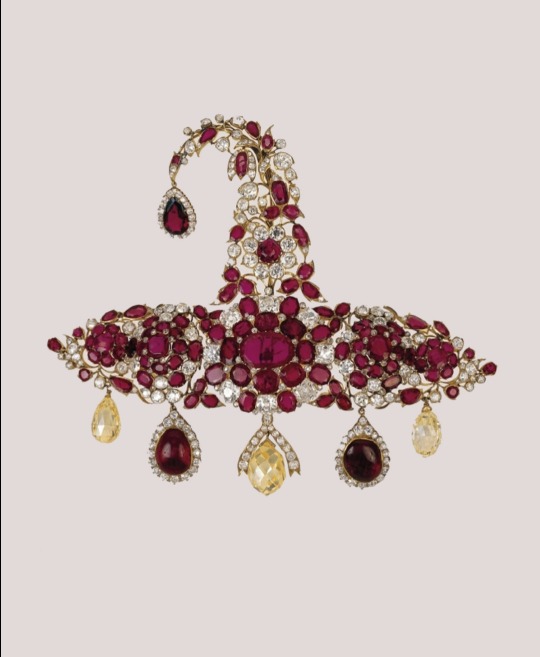
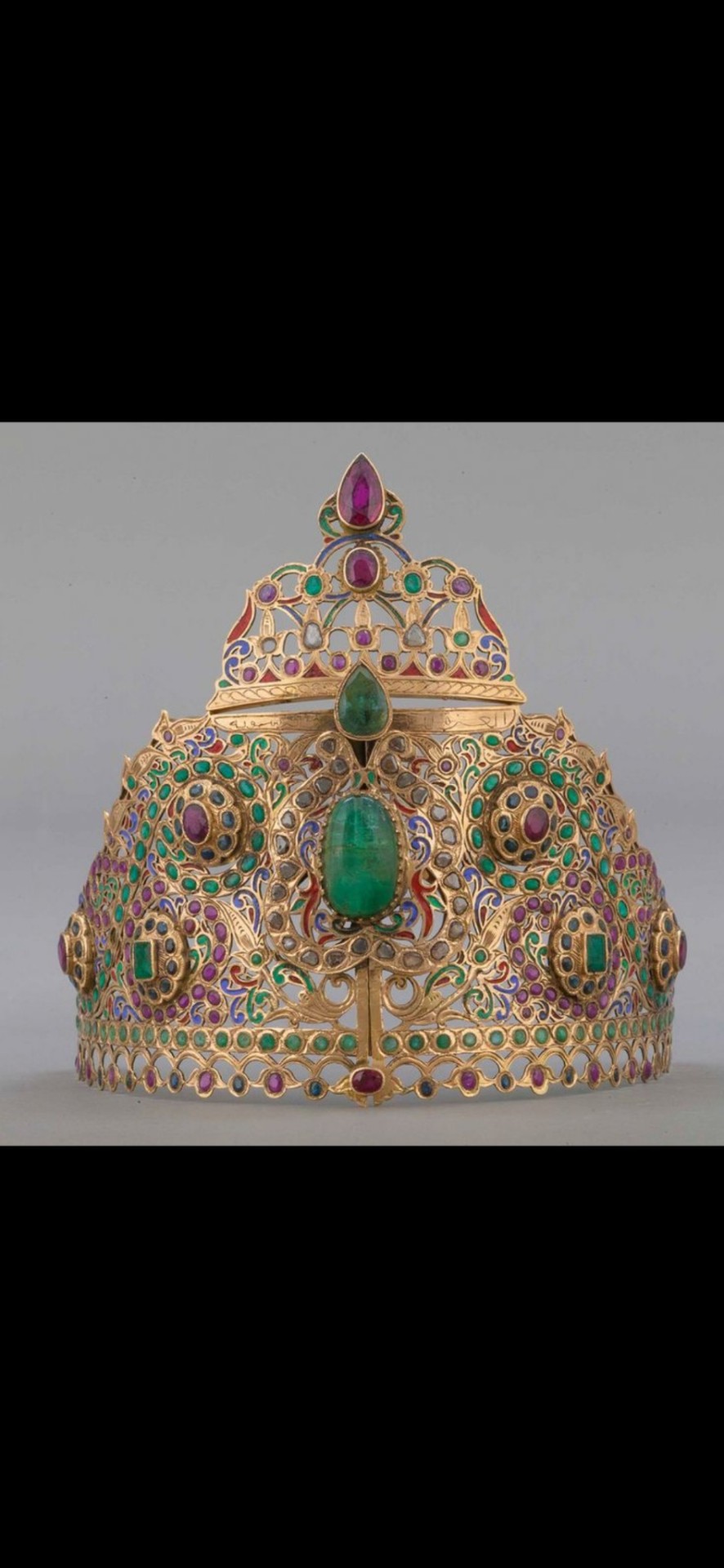
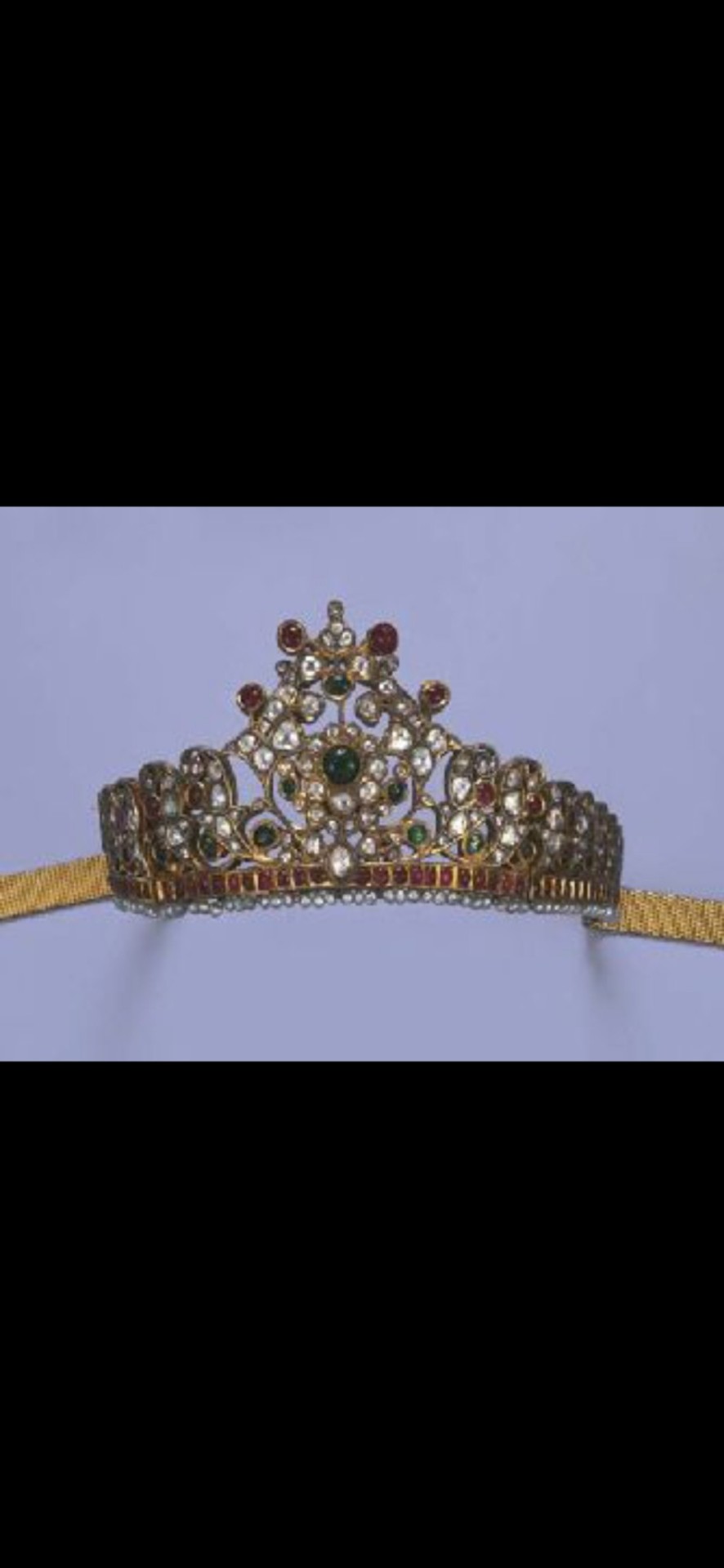
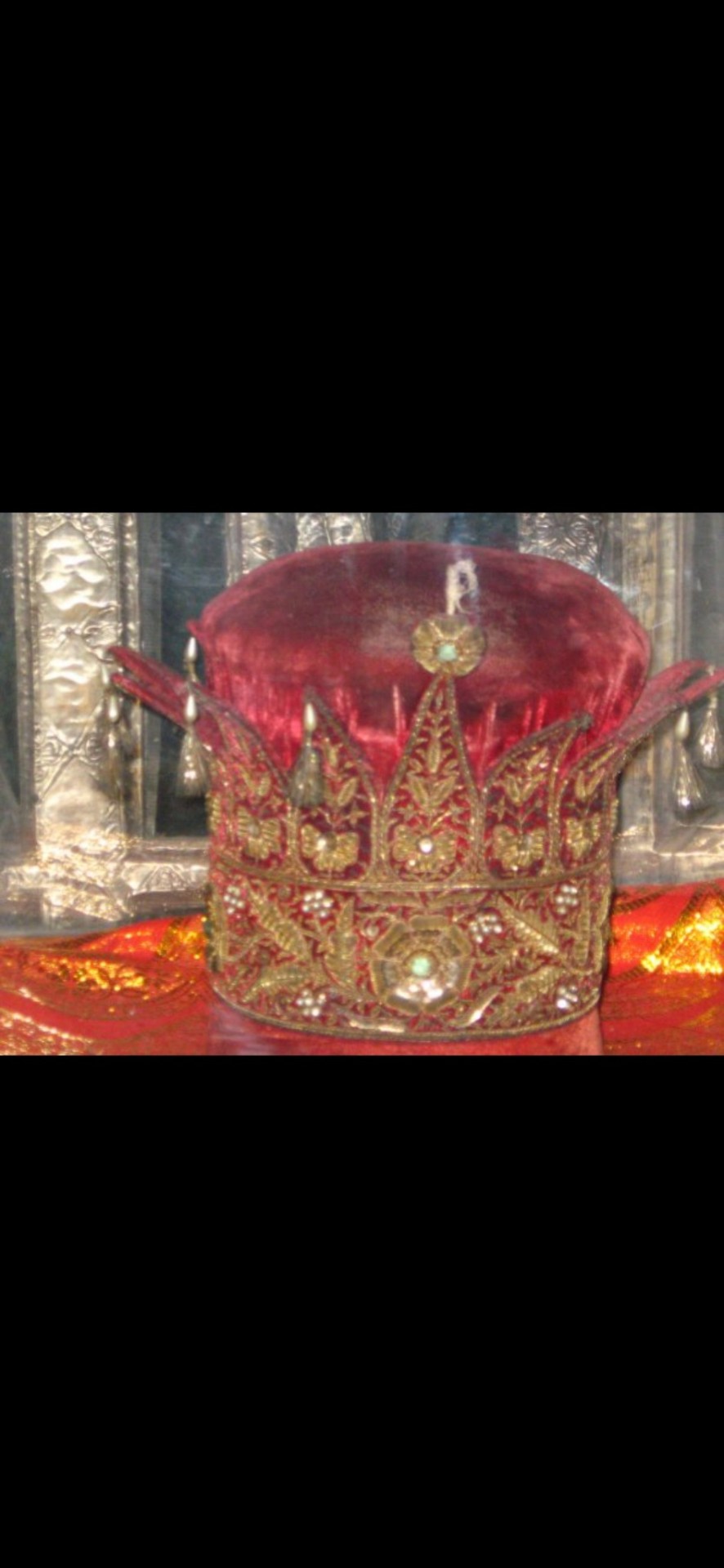
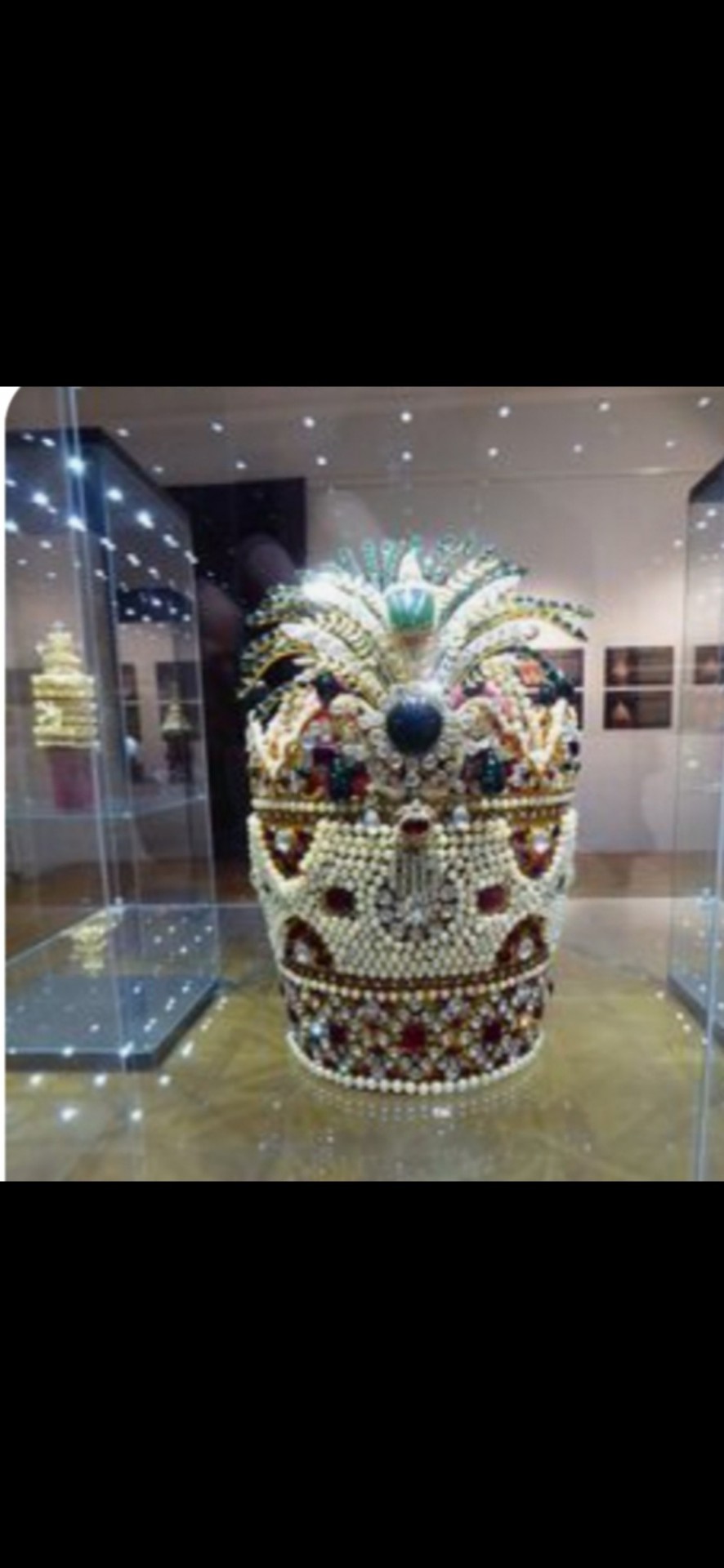
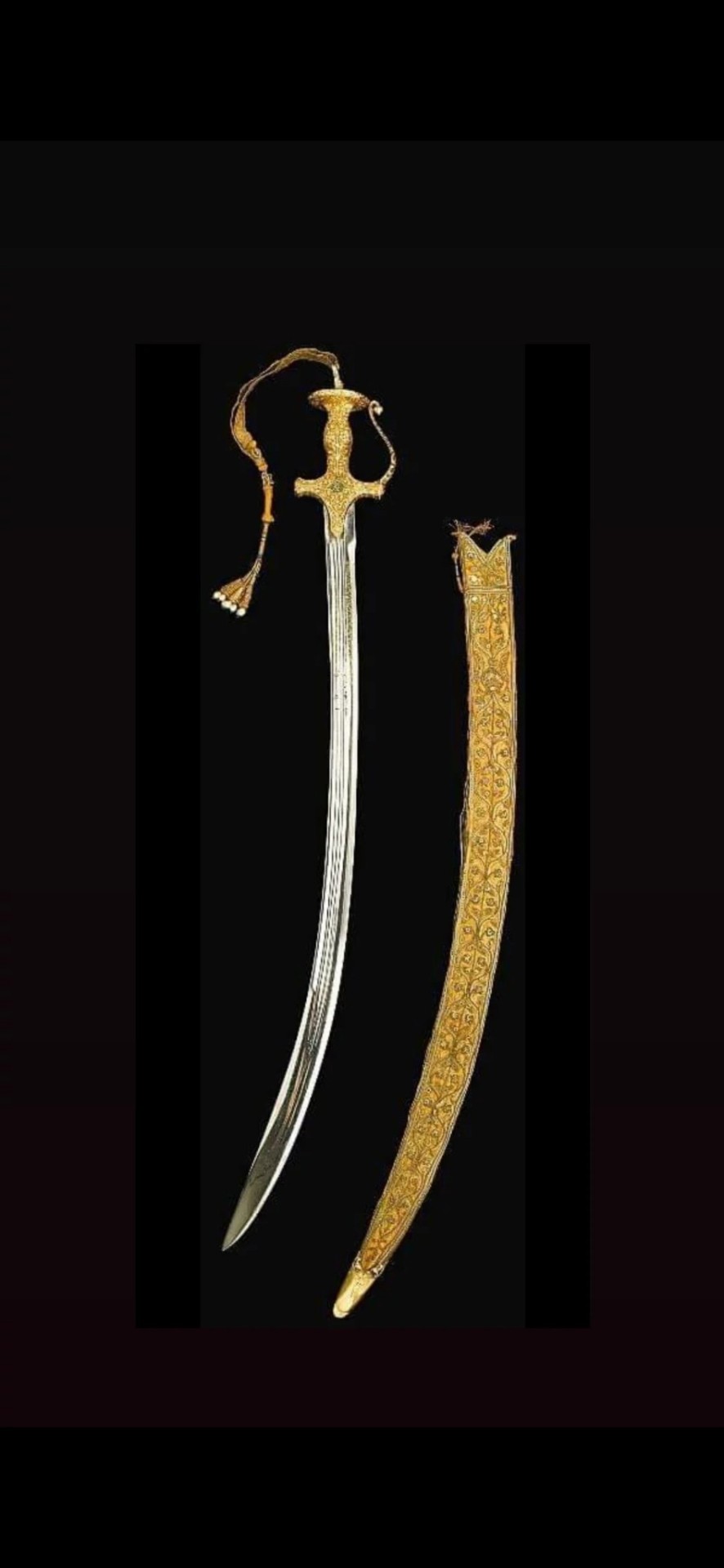
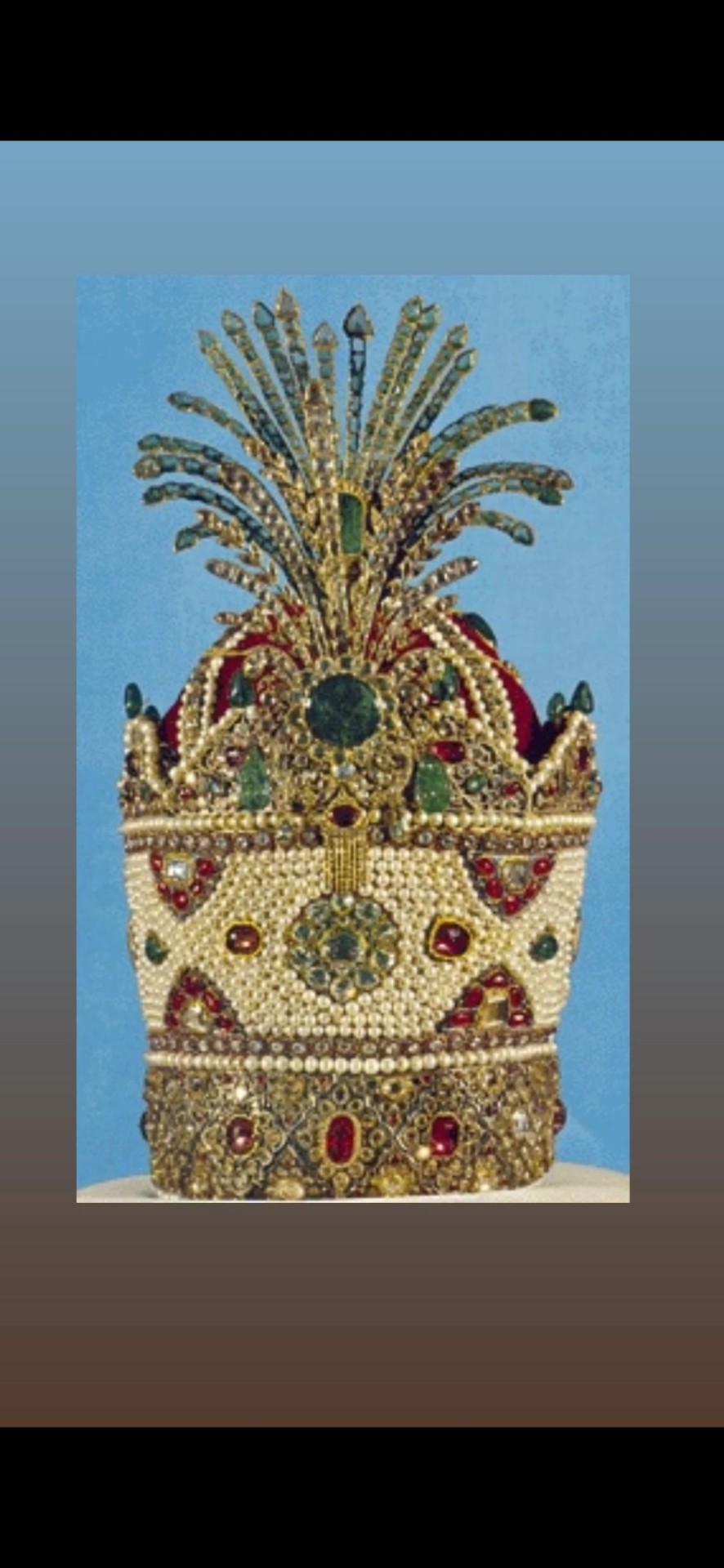

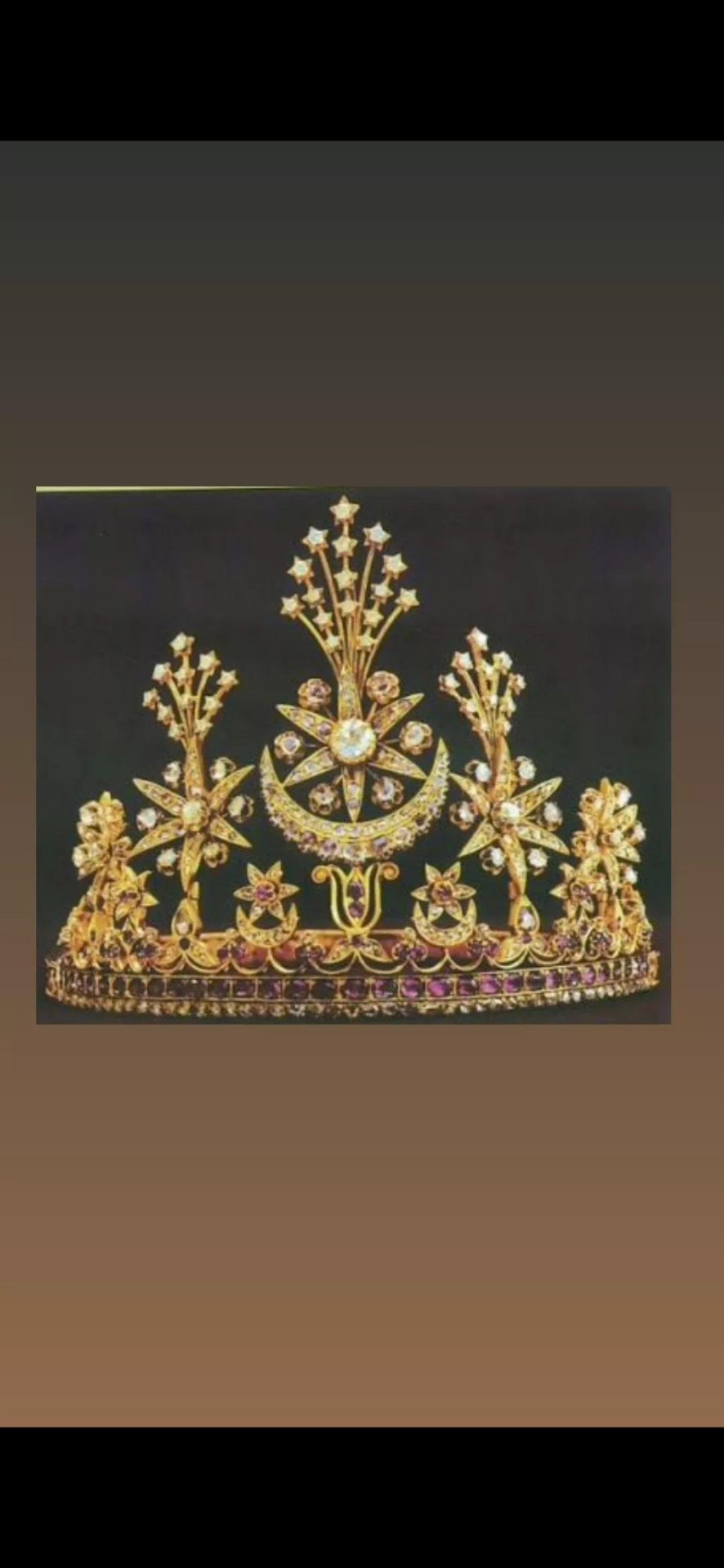
Nizams of Hyderabad
Qajar & Safavid and Palhavi dynasty
Mughal & Nader Shah
The pieces of royalty of persians, Pashtuns and ottoman empire
6 notes
·
View notes
Text

Mirza Abolhassan Khan Ilchi by Thomas Lawrence (1769-1830). Fogg Museum.
#thomas lawrence#fogg museum#british art#19th century art#19th century#male portrait#british painter#iran#persian#persian art#persia#art history#historical fashion#fashion#menswear#19th century aesthetic#europe#united kingdom#great britain#iranian#shiraz#shah#zand iran#zand dynasty#portraiture#portrait#male portrayal#english art#english painter#oil painting
28 notes
·
View notes
Text

Zoroastrian art of Zoroaster fighting off demons from the Campy Shah era. good pulpy religious art. I love how it combines traditional iconography work with this kitschy rolly crump haunted mansion ghoulies it’s actually amazing
#zoroaster#zoroastrianism#shah Iran#the shah#Iran#Persian#Persia#pulp art#pulp illustration#campy#campy horror#religious camp#campy art#kitschy#religious art
15 notes
·
View notes
Text
They really think persian people are black?


#by this logic khomeini and khamenei were gay#y'all shouldn't fight racism with racism#mohammad reza shah#iran#persia#netflix#Netflix strikes again#fuckers
3 notes
·
View notes
Link
• Mossadegh media: newspaper & magazine articles, editorials
#iran#iranian#tehran#mossadegh#shah of iran#foreign policy#middle east#persia#milwaukee#cold war#britain#history#world history#russian#soviet union#foreign affairs#1950's#1953 coup#great britain#revolt
3 notes
·
View notes
Text
#to be frank this is a lot of the Tumblr thing where all evil is committed by the English the French the American and the Dutch#which. yeah a whole fucking lot alright#but like the performative hatred of these cultures is weird#1) because it veers into weird racism directed at like the lower classes of these countries or their language or food or culture#like how ridiculous dutch sounds or cockney sounds or southern or boston accents or aave is or how french sounds like a dog choking#like this could be about systems of power and colonialism and you're just reinventing 19th century nationalism#we saw this with the performative hatred of Sweden that one week where everyone came out of it measuring Scandinavian skulls#but also because 2) it obscures dynamics of power. The problem is X people instead of being like; an idea in motion or a system#the problem with Iran gets to be CIA intervention and not centralisation of power in the capital by a minority#be that under Mossadegh of Khomeini or under all the Shahs#it assumes all the world needs is a non-interventionist US and then every country would be at peace with its ''Indigenous'' power structure#which is actually what benefits those in power everywhere: monarchies and oligarchies defend themselves by saying they're legitimate#whereas decentralised democracies ? that's a dirty American trick and anybody calling for it is a traitor#it assumes everything was going fine everywhere and only like 5 to 6 nations are responsible for the state of the world today#and of course that's when they're not saying 5 or 6 (nations)#and 3) it's the explanation that lets you do the least about it. Your country is fundamentally evil ? cheer on each catastrophe & downfall#you have no responsibility to care or to be part of change except by being part of its destruction#and if you call for change you're a socdem reformist who really wants to save capitalism and existing power structures (@northwest-by-a-train)
I feel like the root problem of american tankies' shallow ideals is redirected american exceptionalism. Internet and globalization has caused them to realize that that they're not in fact the best country in the world as school etc has told them. But instead of understanding that they have problems just like the rest of us (though tbf, their ability to cause other nations harm is unmatched) they now flipped to saying that the us must be the worst country in the entire world and the source of all evil. They cannot comprehend that non-americans are perfectly capable of doing the most heinous shit and thus assume that behind every war or conflict lies a us conspiracy and influence - because surely non-americans are just so innocent, naive and primitive and unlike americans lack the cunning to advance their political goals without help by the US. The fact that not only the US government but also its enemies can be vile at the same time and that sometimes they can even be on the good side is completely beyond them which is why they are never truly against imperialism, genocide or opression unless it is done by americans or their allies.
#as an Iranian-American I appreciate these tags#many people in my family already had to escape Iran even BEFORE the Revolution#because they are from a minority religious group that was already heavily persecuted in Iran even before the Revolution happened#yes things got even WORSE after the Revolution#but I am sick and tired of the utterly fallacious idea that things only got 'bad' in Iran 40 years ago#my people have been persecuted non-stop since the Qajar dynasty#in case anyone forgot...the CIA certainly did not exist then#Persia/Iran has had massive human rights issues for a long time now#so it drives me insane when people in the US think Iran was some kind of human rights paradise prior to the Revolution#or when people think the CIA and the US is entirely to blame for propping up the Shah and the build up to said Revolution#guess who else was also meddling in Iran at that same time???#HINT#RUSSIA (or rather USSR)#that's not to excuse the US but just to show that there's a lot more to that story than tumblr Americans think
2K notes
·
View notes
Text

At House of Emirates® we have the rarest and the most majestic of treasures...here we present this rare pure gold medal ca 11 gram, celebrating the coronation of Iran's last Empress...Her imperial Majesty@ShahbanouFarah Queen Farah Pahlavi https://hoemirates.com/product/rare-gold-treasure-for-the-last-emperor-of-iran-the-coronation-of-farah-pahlavi-as-the-last-empress-of-iran/…
#houseofemirates #Shah_Of_Iran #shahenshah #persia #shahbanou
#PahlaviDynasty
#house of emirates#coins#iran#prince of persia#persian#shah of iran#antiques#art process#ancient coins
0 notes
Text
For years they had confronted a low-grade insurgency in Anatolia (Figure 9.4), where Red-Head* Shiite militants denounced them as corrupt Sunni despots, but this ulcer turned septic when the Persian shah declared himself the descendant of 'Ali in 1501.

*So called because of their tall red hats with twelve folds, symbolizing the twelve imams whose reigns would culminate in the millennium.
"Why the West Rules – For Now: The patterns of history and what they reveal about the future" - Ian Morris
#book quotes#why the west rules – for now#ian morris#nonfiction#insurgency#anatolia#red head shiite#shiite#sunni#muslim#islam#militants#denounced#corrupt#despot#persia#shah#16th century
0 notes
Text
youtube
0 notes
Text
Our 296 Noble and Worthy Contenders
Adhemar, Count of Anjou [Rufus Sewell], A Knight's Tale (2001)
Prince Aemond Targaryen [Ewan Mitchell], House of the Dragon (2022-)
Aguilar de Nerha [Michael Fassbender], Assassin's Creed (2016)
Ahchoo [Dave Chapelle], Robin Hood: Men in Tights (1993)
Ahmad [Mahesh Jadu], Marco Polo (2014)
Ahmed Ibn Fahdlan [Antonio Banderas], The 13th Warrior (1999)
Alessandro Farnese [Diarmuid Noyes], Borgia (2011-2014)
King Alfred the Great [David Dawson], The Last Kingdom (2015-2022)
Shah Ala ad Daula [Olivier Martinez], The Physician (2013)
Allan-A-Dale [Joe Armstrong], BBC’s Robin Hood (2006-2009)
Sultan Alauddin [Ranver Singh], Padmavaat (2018)
Amarendra Baahubali [Prabhas], Baahubali Series (2015-2017)
Amleth [Alexander Skarsgård], The Northman (2022)
Ancelyn ap Gwalchmai [Marcus Gilbert], Doctor Who: “Battlefield” (1989)
Antonius Block [Max von Sydow], The Seventh Seal (1957)
Aragorn, Son of Arathorn [Viggo Mortensen], The Lord of the Rings Trilogy (2001-2003)
Arman [Matevy Lykov], I Am Dragon (2015)
Arn Magnusson [Joakim Nätterqvist], Arn: The Knight Templar (2007)
Arondir [Ismael Cruz Córdova], The Rings of Power (2022-)
Arthur Pendragon [Oliver Tobias], Arthur of the Britons (1972, 1973)
King Arthur [Richard Harris], Camelot (1967)
King Arthur [Graham Chapman], Monty Python and the Holy Grail (1975)
King Arthur [Nigel Terry], Excalibur (1981)
King Arthur [Sean Connery], First Knight (1995)
King Arthur [Alexandre Astier], Kaamelott (2004-2009)
King Arthur [Bradley James], BBC’s Merlin (2008-2012)
King Arthur [Charlie Hunnam], King Arthur: Legend of the Sword (2017)
Asbjörn [Tom Hopper], Northmen: A Viking Saga (2014)
Ash Williams [Bruce Campbell], Army of Darkness (1992)
Asneez [Isaac Hayes], Robin Hood: Men in Tights (1993)
Athelstan [George Blagden], Vikings (2013-2020)
Azeem [Morgan Freeman], Robin Hood: Prince of Thieves (1991)
Azog the Defiler [Manu Bennett], The Hobbit Trilogy (2012-2014)
Balian de Ibelin [Orlando Bloom], Kingdom of Heaven (2005)
Bard the Bowman [Luke Evans], The Hobbit Trilogy (2012-2014)
Ser Barristan Selmy [Ian McIlhinney], Game of Thrones (2011-2019)
Father Beocca [Ian Hart], The Last Kingdom (2015-2022)
Beowulf [Gerard Butler], Beowulf & Grendel (2005)
Bilbo Baggins [Martin Freeman], The Hobbit Trilogy (2012-2014)
Bjørn Ironside [Alexander Ludwig], Vikings (2013-2020)
Bofur [James Nesbitt],The Hobbit Trilogy (2012-2014)
Boromir, Son of Denethor [Sean Bean], The Lord of the Rings Trilogy (2001-2003)
Sir Bowen [Dennis Quaid], Dragonheart (1996)
Sir Brian de Bois-Guilbert [Sam Neill], Ivanhoe (1982)
Sir Brian de Bois-Guilbert [Ciaran Hinds], Ivanhoe (1997)
Bronn [Jerome Flynn], Game of Thrones (2011-2019)
Brother Cadfael [Derek Jacobi], Cadfael (1994-1998)
Carlos I [Álvaro Cervantes], Carlos Rey Emperador (2015-2016)
Caspian X [Ben Barnes], The Chronicles of Narnia (2010)
King Caspian X [Samuel West], Prince Caspian and the Voyage of the Dawn Treader (1989)
Cesare Borgia [Mark Ryder], Borgia (2011-2014)
Cesare Borgia [Francois Arnaud], The Borgias (2011-2013)
Charles Brandon [Henry Cavill], The Tudors (2007-2010)
Prince Charmont [Hugh Dancy], Ella Enchanted (2004)
Prince Chauncley [Daniel Radcliffe], Miracle Workers: The Dark Ages (2020)
Chris Vexler [Karan Soni], Miracle Workers: The Dark Ages (2020)
Chu Hun [Peter Ho], Double World (2020)
“Cinderella’s Prince” [Chris Pine], Into the Woods (2014)
Connor MacLeod [Christopher Lambert], Highlander (1986)
Corlys Velaryon [Steve Toussaint], House of the Dragon (2022-)
Ser Criston Cole [Fabien Frankel], House of the Dragon (2022-)
Daario Naharis [Michiel Huisman], Game of Thrones (2011-2019)
Prince Daemon Targaryen [Matt Smith], House of the Dragon (2022)
Darkness [Tim Curry], Legend (1985)
Ser Davos Seaworth [Liam Cunningham], Game of Thrones (2011-2019)
Prince Dastan [Jake Gyllenhaal], Prince of Persia: The Sands of Time (2010)
Dong Yilong [Henry Lau], Double World (2020)
Khal Drogo [Jason Momoa], Game of Thrones (2011-2019)
Durotan [Toby Kebbell], Warcraft (2016)
Eamon Valda [Abdul Salis], The Wheel of Time (2022-)
King Ecbert Ealhmunding [Linus Roache], Vikings (2013-2020)
Lord Eddard Stark [Sean Bean], Game of Thrones (2011-2019)
Edgin Darvis [Chris Pine], Dungeons & Dragons: Honour Among Thieves (2023)
King Edmund the Just [Skandar Keynes, Mark Wells], The Chronicles of Narnia (2005-2010)
King Edward I Plantagenet [Stephen Dillane], Outlaw King (2018)
King Edward III Plantagenet [Blake Ritson], A World Without End (2012)
King Edward IV Platagenet [Max Irons], The White Queen (2013)
Edward, the Black Prince [James Purefoy], A Knight’s Tale (2001)
Edward Seymour, Earl of Hertford [Claude Rains], The Prince and the Pauper (1937)
Elendil [Lloyd Owen], The Rings of Power (2022-)
Elrond Half-elven [Hugo Weaving], The Lord of the Rings Trilogy (2001-2003)
Elrond Half-elven [Robert Aramayo], The Rings of Power (2022-)
Sir Elyan [Adetomiwa Edun], BBC’s Merlin (2008-2012)
Éomer, Son of Éomund [Karl Urban], The Lord of the Rings Trilogy (2001-2003)
Erik Thurgilson [Christian Hillborg], The Last Kingdom (2015-2022)
Étienne de Navarre [Rutger Hauer], Ladyhawke (1985)
Faramir, Son of Denethor [David Wenham], The Lord of the Rings Trilogy (2001-2003)
Fezzik [André the Giant], The Princess Bride (1987)
Fili [Dean O’Gorman], The Hobbit Trilogy (2012-2014)
Finan [Mark Rowley], The Last Kingdom (2015-2022)
Fjölnir [Claes Bang], The Northman (2022)
Forge Fitzwilliam [Hugh Grant], Dungeons & Dragons: Honor Among Thieves (2023)
Francesco de Pazzi [Matteo Martari], Medici (2016-2019)
Francois Villon [Ronald Colman], If I Were King (1938)
Frodo Baggins [Elijah Wood], The Lord of the Rings Trilogy (2001-2003)
Sir Galahad [Michael Palin], Monty Python and the Holy Grail (1975)
Galavant [Joshua Sasse], Galavant (2015-2016)
Galessin, Duke of Orkney [Alexis Hénon], Kaamelott (2004-2009)
Gandalf [Ian McKellan], The Lord of the Rings Trilogy (2001-2003)
Gawain [Dev Patel], The Green Knight (2021)
Gendry Waters [Joe Dempsie], Game of Thrones (2011-2019)
Geoffrey Chaucer [Pier Paolo Pasolini], The Canterbury Tales (1972)
Geoffrey Chaucer [Paul Bettany], A Knight’s Tale (2001)
George Plantagenet, Duke of Clarence [David Oakes], The White Queen (2013)
Geralt z Rivii [Michał Żebrowski], Wiedźmin {The Witcher} (2002)
Geralt of Rivia [Henry Cavill], The Witcher (2019-)
Gest [Jakob Þór Einarsson], Hrafninn flýgur {When the Raven Flies}(1984)
Gimli, Son of Gloin [John Rhys-Davies], The Lord of the Rings Trilogy (2001-2003)
Giuliano de Medici [Bradley James], Medici (2016-2019)
Glenstorm [Cornell John], The Chronicles of Narnia: Prince Caspian (2008)
Prince Graydon Hastur [Tony Revolori], Willow (2022)
Gríma Wormtongue [Brad Dourif], The Lord of the Rings Trilogy (2001-2003)
Gu Tingye [Feng Shaofeng], The Story of Minglan (2018)
Guildenstern [Tim Roth], Rosencrantz and Guildenstern Are Dead (1990)
Gündoğdu Bey [Kaan Taşaner], Diriliş: Ertuğrul {Resurrection: Ertuğrul} (2014-2019)
Sir Guy of Gisbourne [Basil Rathbone], The Adventures of Robin Hood (1938)
Sir Guy of Gisburne [Robert Addie], Robin of Sherwood (1984-1986)
Sir Guy of Gisborne [Michael Wincott], Robin Hood: Prince of Thieves (1991)
Sir Guy of Gisborne [Richard Armitage], BBC’s Robin Hood (2006-2009)
Sir Gwaine [Eoin Macken], BBC’s Merlin (2008-2012)
Haldir of Lothόrien [Craig Parker], The Lord of the Rings Trilogy (2001-2003)
Prince Hamlet [Laurence Olivier], Hamlet (1948)
Prince Hamlet [Christopher Plummer], Hamlet at Elsinore (1964)
Hamlet [Iain Glen], Rosencrantz and Guildenstern Are Dead (1990)
Lord Harekr [Bradley James], Vikings: Valhalla (2022-)
King Henry II Plantagenet [Peter O’Toole], Becket (1964)
King Henry II Plantagenet [Peter O’Toole], The Lion in Winter (1968)
King Henry V Plantagenet [Laurence Olivier], Henry V (1944)
King Henry V Plantagenet [Kenneth Branagh], Henry V (1989)
King Henry V Plantagenet [Tom Hiddleston], The Hollow Crown (2012-2016)
Henry VII Tudor [Luke Treadaway], The Hollow Crown (2012-2016)
King Henry VIII [Ray Winstone], Henry VIII (2003)
Prince Henry [Dougray Scott], Ever After (1998)
Hubert Hawkins [Danny Kaye], The Court Jester (1955)
Hugh Beringar [Sean Pertwee], Cadfael (1994-1998)
Prince Humperdink [Chris Sarandon], The Princess Bride (1987)
Inigo Montoya [Mandy Patinkin], The Princess Bride (1987)
Isildur, Son of Elendil [Maxim Baldry], The Rings of Power (2022-)
Ivanhoe [Anthony Andrews], Ivanhoe (1982)
Ivar the Boneless [Alex Høgh Andersen], Vikings (2013-2020)
Jacques le Gris [Adam Driver], The Last Duel (2021)
Jack [Tom Cruise], Legend (1985)
Jafar [Marwan Kenzari], Aladdin (2019)
Ser Jaime Lannister [Nikolaj Coster-Waldau], Game of Thrones (2011-2019)
James Douglas [Aaron Taylor Johnson], Outlaw King (2018)
Jareth, the Goblin King [David Bowie], Labyrinth (1986)
Jaskier [Joey Batey], The Witcher (2019-)
Prince Jingim [Remy Hii], Marco Polo (2014)
Little John [Nicol Williamson], Robin and Marian (1976)
Little John [Eric Allan Kramer], Robin Hood: Men in Tights (1993)
Prince John [Claude Rains], The Adventures of Robin Hood (1938)
Prince John [Richard Lewis], Robin Hood: Men in Tights (1993)
Prince John [Oscar Isaac], Robin Hood (2010)
Jon Snow [Kit Harrington], Game of Thrones (2011-2019)
Ser Jorah Mormont [Iain Glen], Game of Thrones (2011-2019)
Kai [Michael Gothard], Arthur of the Britons (1972, 1973)
Kili [Aiden Turner], The Hobbit Trilogy (2012-2014)
The Kurgan [Clancy Brown], Highlander (1986)
al’Lan Mandragoran [Daniel Henney], The Wheel of Time (2022)
Sir Lancelot [Luc Simon], Lancelot du Lac (1974)
Sir Lancelot [Nicholas Clay], Excalibur (1981)
Sir Lancelot [Richard Gere], First Knight (1995)
Sir Lancelot [Santiago Cabrera], BBC’s Merlin (2008-2012)
Legolas Greenleaf [Orlando Bloom], The Lord of the Rings Trilogy (2001-2003)
Leofric [Adrian Bower], The Last Kingdom (2015-2022)
Sir Leon [Rupert Young], BBC’s Merlin (2008-2012)
Lin Shu [Hu Ge], Nirvana in Fire {Lángyá Bǎng} (2015)
Loial [Hammed Animashaun], The Wheel of Time (2022-)
Lurtz [Lawrence Makoare], The Lord of the Rings Trilogy (2001-2003)
Madmartigan [Val Kilmer], Willow (1988)
Le Maître d'Armes (the fencing master) [Christian Bujeau], Kaamelott (2005-2009)
“Man With Snake” [Barry John Clarke], Edward II (1991)
King Mark of Cornwall [Rufus Sewell], Tristan & Isolde (2006)
Martin [Rutger Hauer], Flesh + Blood (1985)
Massetto [Dave Franco], The Little Hours (2017)
Matrim “Mat” Cauthon [Donal Finn], The Wheel of Time (2022)
“The Mayor of Hamelin” [Claude Rains], The Pied Piper of Hamelin (1957)
Mehmed II [Cem Yiğit Üzümoğlu], Rise of Empires: Ottoman (2020-2022)
Meriadoc “Merry” Brandybuck [Dominic Monaghan], The Lord of the Rings Trilogy (2001-2003)
Merlin [Nicol Williamson], Excalibur (1981)
Merlin [Sam Niell], Merlin (1998)
Merlin [Colin Morgan], BBC’s Merlin (2008-2012)
Mikoláš Kozlík [František Velecký], Marketa Lazarová (1967)
Miles Hendon [Errol Flynn], The Prince and the Pauper (1937)
Mordred [Jason Done], Merlin (1998)
Much [Sam Troughton], BBC’s Robin Hood (2006-2009)
Murtagh Morzansson [Garrett Hedlund], Eragon (2002)
The Mute [Jon Bernthal], Pilgrimage (2017)
Nasir [Mark Ryan], Robin of Sherwood (1984-1986)
Niankoro [Issiaka Kane], Yeelen (1987)
Niccoló Machiavelli [Julian Bleach], The Borgias (2011-2013)
Niccoló Machiavelli [Thibaut Evrard], Borgia (2011-2014)
Nicodemus Ravens [Jakob Oftebro], Skammerens Datter {The Shamer's Daughter} (2015)
Prince Oberyn Martell [Pedro Pascal], Game of Thrones (2011-2019)
Odda the Elder [Simon Kunz], The Last Kingdom (2015-2022)
“One-Eye” [Mads Mikkelsen], Valhalla Rising (2009)
Osferth [Ewan Mitchell], The Last Kingdom (2015-2022)
Sir Percival [Tom Hopper], BBC’s Merlin (2008-2012)
Peregrin “Pippin” Took [Billy Boyd], The Lord of the Rings Trilogy (2001-2003)
Pero Tovar [Pedro Pascal], The Great Wall (2016)
Perrin Aybara [Marcus Rutherford], The Wheel of Time (2022-)
Petyr “Littlefinger” Baelish [Aiden Gillen], Game of Thrones (2011-2019)
High King Peter the Magnificent [William Moseley, Noah Huntley], The Chronicles of Narnia (2005-2010)
Philip II [Timothy Dalton], The Lion in Winter (1968)
Phillippe Gaston [Matthew Broderick], Ladyhawke (1985)
“The Player” [Richard Dreyfuss], Rosencrantz and Guildenstern are Dead (1990)
Podrick Payne [Daniel Portman], Game of Thrones (2011-2019)
Prince Prospero [Vincent Price], The Masque of the Red Death (1964)
Ragnar Lothbrok [Travis Fimmel], Vikings (2013-2020)
Ramsay Bolton [Iwan Rheon], Game of Thrones (2011-2019)
Rand al’Thor [Josha Stradowski], The Wheel of Time (2022-)
Ravenhurst [Basil Rathbone], The Court Jester (1955)
“The Red Death” [John Westbrook], The Masque of the Red Death (1964)
Renly Baratheon [Gethin Anthony], Game of Thrones (2011-2019)
Richard Cypher [Craig Horner], Legend of the Seeker (2008-2010)
King Richard [Timothy Omundson], Galavant (2015-2016)
Richard II Plantagenet [Ben Whishaw], The Hollow Crown (2012-2016)
Richard III Plantagenet [Aneurin Barnard], The White Queen (2013)
King Richard III Plantagenet [Benedict Cumberbatch], The Hollow Crown (2012-2016)
King Richard IV [Brian Blessed], The Black Adder (1982)
Rilk [Jesse Lee Keeter] JourneyQuest (2010)
Robert of Artois [Jean Piat], The Accursed Kings (1972)
Robert of Huntingdon [Jason Connery], Robin of Sherwood (1984)
Robert the Bruce [Chris Pine], Outlaw King (2018)
Robin Hood [Errol Flynn], The Adventures of Robin Hood (1938)
Robin Hood [Richard Todd], The Story of Robin Hood and His Merrie Men (1952)
Robin Hood [Sean Connery], Robin and Marian (1976)
Robin Hood [Michael Praed], Robin of Sherwood (1984)
Robin Hood [Kevin Costner], Robin Hood: Prince of Thieves (1991)
Robin Hood [Cary Elwes], Robin Hood: Men in Tights (1993)
Robin Hood [Jonas Armstrong], BBC’s Robin Hood (2006-2009)
Robin Hood [Tom Riley], Doctor Who: “The Robot of Sherwood” (2014)
Robin Longstride [Russell Crowe], Robin Hood (2010)
Rodrigo Borgia [Jeremy Irons], The Borgias (2011-2013)
Rollo [Clive Standen], Vikings (2013-2020)
Roose Bolton [Michael McElhatton], Game of Thrones (2011-2019)
Rosencrantz [Gary Oldman], Rosencrantz and Guildenstern Are Dead (1990)
Count Rugen [Christopher Guest], The Princess Bride (1987)
Saburo Naotora Ichimonji [Ryu Daisuke], Ran (1985)
Saladin [Milind Soman], Arn: The Knight Templar (2007), Arn: The Kingdom at Road’s End (2008)
Samwise Gamgee [Sean Astin], The Lord of the Rings Trilogy (2001-2003)
Sandor Clegane [Rory McCann], Game of Thrones (2011-2019)
Saruman [Christopher Lee], The Lord of the Rings Trilogy (2001-2003)
Stannis Baratheon [Stephen Dillane], Game of Thrones (2011-2019)
Tajomaru [Toshiro Mifune], Rashomon (1950)
“The Sherriff of Nottingham” [Alan Wheatley], The Adventures of Robin Hood (1955-1959)
“The Sherriff of Nottingham” [Peter Cushing], The Sword of Sherwood Forest (1960)
“The Sherriff of Nottingham” [Alan Rickman], Robin Hood: Prince of Thieves (1991)
“The Sherriff of Rottingham” [Roger Rees], Robin Hood: Men in Tights (1993)
Sid [Luke Youngblood], Galavant (2015-2016)
Sihtric Kjartansson [Arnas Fedaravicius], The Last Kingdom (2015-2022)
Simon Aumar [Justice Smith], Dungeons & Dragons: Honor Among Thieves (2023)
Steapa [Adrian Bouchet], The Last Kingdom (2015-2022)
Syrio Forel [Miltos Yerolemou], Game of Thrones (2011-2019)
“Taunting French Guard” [John Cleese], Monty Python and the Holy Grail (1975)
Theoden, Son of Thengel [Bernard Hill], The Lord of the Rings Trilogy (2001-2003)
Thierry de Janville [Jean-Claude Drouot], Thierry la Fronde (1963-1966)
Thomas Becket [Richard Burton], Becket (1964)
Thomas Cromwell [Mark Rylance], Wolf Hall (2015-2024)
Sir Thomas Gray [Nigel Terry], Covington Cross (1992)
Thorin Oakenshield [Richard Armitage], The Hobbit Trilogy (2012-2014)
Thranduil, The Elvenking [Lee Pace], The Hobbit Trilogy (2012-2014)
Thraxus Boorman [Amar Chadha-Patel], Willow (2022)
Tom Builder [Rufus Sewell], The Pillars of the Earth (2010)
Tormund Giantsbane [Kristofer Hivju], Game of Thrones (2011-2019)
Sir Tristan [Kingsley Ben-Adir], King Arthur: Legend of the Sword (2017)
Trumpkin [Peter Dinklage], The Chronicles of Narnia: Prince Caspian (2008)
Mr. Tumnus [James McAvoy], The Chronicles of Narnia: The Lion, the Witch and the Wardrobe (2005)
Turgut Alp [Cengiz Coşkun], Diriliş: Ertuğrul (2014-2019)
Tyrion Lannister [Peter Dinklage], Game of Thrones (2011-2019)
Lord Tywin Lannister [Charles Dance], Game of Thrones (2011-2019)
Ubbe [Jordan Patrick Smith], Vikings (2013-2020)
Uglúk [Nathaniel Lees], The Lord of the Rings Trilogy (2001-2003)
Uhtred of Bebbanburgh [Alexander Dreymon], The Last Kingdom (2015-2022)
Ulrich von Jungingen [Stanislaw Jasiukiewicz], Knights of the Teutonic Order (1960)
“Unnamed Elf Escort” [Bret McKenzie], The Lord of the Rings Trilogy (2001-2003)
Uther Pendragon [Gabriel Byrne], Excalibur (1981)
Uther Pendragon [Anthony Stewart Head], BBC’s Merlin (2008-2012)
Vaisey, Sheriff of Nottingham [Keith Allen], BBC’s Robin Hood (2006-2009)
Vlad III Dracula [Luke Evans], Dracula Untold (2014)
King Vortigen [Jude Law], King Arthur: Legend of the Sword (2017)
Wat [Alan Tudyk], A Knight’s Tale (2001)
Wen Kexing [Gong Jun], Word of Honor (2021)
Westley [Cary Elwes], The Princess Bride (1987)
Wil Ohmsford [Austin Butler], The Shannara Chronicles (2016)
William Wallace [Mel Gibson], Braveheart (1995)
Will Scarlet O’Hara [Matthew Porretta], Robin Hood: Men in Tights (1993)
Will Scarlett [Patrick Knowles], The Adventures of Robin Hood (1938)
Will Scarlett [Christian Slater], Robin Hood: Prince of Thieves (1991)
Will Scarlett [Harry Lloyd], BBC’s Robin Hood, (2006-2009)
William Thatcher [Heath Ledger], A Knight’s Tale (2001)
Willow Ufgood [Warwick Davis], Willow (2022)
Xenk Yendar [Regé-Jean Page], Dungeons & Dragons: Honor Among Thieves (2023)
Zbyszko z Bogdanca [Mieczyslaw Kalenik], Knights of the Teutonic Order (1960)
103 notes
·
View notes
Text






3 notes
·
View notes
Text
To understand the full context of the American-led ‘53 coup against Mosaddegh in Iran it is imo critical to recognize anti-communism as a proximate cause. Write-up below:
It is commonly understood that the early decades of the 20th century in Iran are characterized by British colonial extortion of material resources (mostly oil) within the boundaries of “Persia” (pre-1935) / “Iran” (post). The penultimate monarchical dynasty, the Qajars, were ousted in 1925—but the exile of the last Qajar Ahmad Shah was the direct result of the 1921 military coup led by then-Reza Khan (later the first “Pahlavi”, Reza Shah) which was directed by Britain. And at this time, British anxieties heavily featured concerns about Bolshevik encroachment from the Caucuses (not just through the newly-formed Azerbaijan SSR, but also through domestic sympathizers that fueled such projects as large as the transient Persian SSR, put down by Reza Khan after Soviet withdrawal).
This is stage-setting. Of course, by the 50s, in tandem with Cold War thread-pulling, the Anglo-Iranian Oil Company constituted a thirsty tentacle of British imperialism sucking Abadan dry and contributing pittances to the local economy. It was in the midst of decades of growing resentment against this presence that Mosaddegh became Prime Minister in 1951 as the leader of the broad National Front coalition, and we are familiar with how intensely he campaigned for nationalizing the country’s oil and how pissy this made the British (here’s one and another post on the subject if not).
Here’s the detour: you may know that it was the CIA, an American institution, that orchestrated the ‘53 coup to oust Mosaddegh. But we were just now discussing threats against British colonial power in Iran. How did things get from B to A, as it were? We can’t take this for granted.
The British in fact spent the intervening two years trying to get Mosaddegh out by mobilizing the Shah and various right-wing (often clerical and mercantile) interests in Iran (this point, and much of what follows, draws from bits of Darioush Bayandor’s Iran and the CIA and Mostafa Elm’s Oil, Power, and Principle). They spent the same two years desperately trying to get the Americans on board with their efforts. But—here it is—the Truman regime and American foreign policy was in general intensely hostile to this strain of British interventionism in Iran, going so far as to issue warnings against it.
Why? Well, as you would expect, the Americans were concerned about Soviet influence in the region. Then-U.S ambassador in Tehran Henry Grady claimed that “Mosaddegh’s National Front party is the closest thing to a moderate and stable element in the national parliament” (Wall Street Journal, June 9 1951). This summarizes the American position at the time: Mosaddegh’s nationalist movement constituted the bastion against communism, and the US was very interested in the survival of this bastion lest Iran align with the USSR.
What happened between 1951 and 1953 is that British pressure, operating through the Shah and more conservative elements of the Iranian government, jeopardized moderate support for Mosaddegh. With the right and center-right against him an entire wing of National Front coalition was falling off, and Mosaddegh found himself leaning more and more on the strengthening Tudeh Party, which had grown in numbers to militaristic significance during Mosaddegh’s tenure (including a network of at least 600 officers in the state military). Tudeh, of course, was the pro-Soviet communist party in Iran. And now the threads come together.
It was in this context of Mosaddegh, backed into a corner with almost only the communists behind him, that the CIA released a memo on November 20th, 1952 singing a very different tune:
It is of critical importance to the United States that Iran remain an independent and sovereign nation, not dominated by the USSR...
Present trends in Iran are unfavorable to the maintenance of control by a non-communist regime for an extended period of time. In wresting the political initiative from the Shah, the landlords, and other traditional holders of power, the National Front politicians now in power have at least temporarily eliminated every alternative to their own rule except the Communist Tudeh Party...
It is clear that the United Kingdom no longer possesses the capability unilaterally to assure stability in the area. If present trends continue unchecked, Iran could be effectively lost to the free world in advance of an actual Communist takeover of the Iranian Government. Failure to arrest present trends in Iran involves a serious risk to the national security of the United States.
And (!!!)
In light of the present situation the United States should adopt and pursue the following policies:...
Be prepared to take the necessary measures to help Iran to start up her oil industry and to secure markets for her oil so that Iran may benefit from substantial oil reserves...
Recognize the strength of Iranian nationalist feeling; try to direct it into constructive channels and be ready to exploit any opportunity to do so
It took two tries for the CIA to bring about a coup that removed Mosaddegh from power, but the objective of this coup was not the preservation of British control over Iranian resources; it was the maintenance of the Western sphere of influence against communist revolution (this was further prioritized by the arrival of the Eisenhower administration). In fact, after the coup the Anglo-Iranian Oil Company (now renamed British Petroleum) had to make room for six other companies from the US, France, and the Netherlands as part of a consortium, and this consortium would split profits with Iran 50/50. This is, to be clear, still colonialist extraction! But it constitutes a huge blow to British economic interests, because they were never the CIA’s goal. This is part of why the post-coup government is characterized far more as a US puppet than a British one.
It does remain that this was a sequence of events very much set in motion because of actions taken by the British government; by the time they managed to get shit to hit the fan, though, it was very much no longer in their control where the shit was flying.
614 notes
·
View notes
Text

The daughter of a great queen, Padishah Khatun (1256–1295) fought for her rights and proved herself to be a capable and determined ruler.
A strategic alliance
Padishah was the daughter of Qutb al-Din Mohammad, a member of the Qutlugh-Khanid dynasty, which was loyal to the Mongol Empire, and his wife, Qutlugh Turkan. After Qutb al-Din’s death in 1257, Turkan seized power, ruling Kerman (modern-day Iran) in her own name.
Padishah, her mother’s favorite child, received an exceptional education and excelled in poetry and calligraphy. In 1272, she married Abaqa Khan, the ruler of the Ilkhanate. Her marriage came with a grand household, and she frequently met with her mother and acted as her representative at court. This position was vital for defending her mother’s interests and maintaining her rule over Kerman
A wronged daughter
The death of Abaqa Khan in 1282 changed everything. His successor, Tegüder Ahmad, deposed Turkan and handed the throne of Kerman to Turkan’s stepson, Suyurghatmish. Soon after, Turkan passed away. Padishah chose not to accompany her mother’s remains back to Kerman, instead remaining at court to safeguard her interests. However, she sent her sister, Bibi Terken, to represent her in Kerman.
Tegüder’s reign was short-lived. In 1284, his successor Argun summoned Suyurghatmish to court and divided Kerman between Padishah and her rival. Unsurprisingly, Padishah was disappointed by this decision. Meanwhile, Suyurghatmish strengthened his position by marrying a Mongol princess, Kurdujin Khatun, eventually regaining full control of Kerman.
Padishah later married Argun’s brother, Gaykhatu. Although she managed to recover her personal domain of Sirjan in 1289, she had to wait patiently for the tides to shift in her favor.
Queen at last
Argun’s death in 1291 paved the way for Padishah’s return to power. Gaykhatu, now head of the Ilkhanate, reinstated Padishah as ruler of Kerman in 1292. She adopted the title Safwat al-Dunya wa al-Din (“Purity of the World and the Faith”) and also referred to herself as Ḵodāvand-e ʿĀlam (“Lord of the World”), a title that appeared on her coins.
Her first act was to neutralize her opposition. She imprisoned Suyurghatmish, and, doubting his loyalty, had him strangled.
Like her mother, Padishah’s reign was marked by justice and a dedication to the welfare of her people. She encouraged charitable works and extended her influence to nearby regions. Writing under the pen name Lāla Ḵātun, she composed poetry and supported scholars and poets.

Cycle of revenge
The assassination of her husband Gaykhatu in 1295 by his successor, Baydu, placed Padishah in a precarious position. Baydu was married to Shah ʿAlam, Suyurghatmish’s daughter, who sought revenge for her father’s death. Suyurghatmish’s widow, Kurdujin, was also ready to act.
Although Padishah remained in Kerman, many of her supporters abandoned her. She sought alliances but found none. Kurdujin, with the backing of loyal amirs, besieged Kerman, forcing Padishah to surrender.
Padishah was taken to court and eventually assassinated, likely at the instigation of Kurdujin and Shah ʿAlam. Her remains were returned to Kerman, where she was buried in the seminary built by her mother.
Though Kurdujin emerged victorious, she was never formally crowned ruler of Kerman, and her triumph was short-lived. She later became queen of Shiraz in 1319 and was succeeded by her niece, Sultan Khatun, upon her death. Their authority appears to have been more symbolic than political and limited to the city.
Enjoyed this post? You can support me on Ko-fi!
Further reading
De Nicola Bruno, Women in Mongol Iran: The Khatuns 1206-1335
Lambton Ann K. S., Continuity and Change in Medieval Persia Aspects of Administrative, Economic, and Social History, 11th-14th Century
Mernissi Fatima, The Forgotten queens of Islam
“PĀDŠĀH ḴĀTUN”, Encyclopaedia Iranica
#this is probably my last post of the year :)#padishah khatun#history#women in history#women's history#historyedit#13th century#iran#iranian history#queens#powerful women#ilkhanate#mongol history#kurdujin khatun#sultan khatun#kerman#central asian history
31 notes
·
View notes
Text
This unredacted nine-page British report from September 1953 summarized the political, military, civilian and external factors leading to the overthrow of Mossadegh in Iran. Everything except their own role in the coup!
The Mossadegh Project
#iran#iranian#tehran#middle east#mossadegh#foreign policy#shah of iran#british#1953 coup#foreign affairs#history#persian#persia#coup d'etat#coup attempt#cold war#1950's#britain#imperialism#western imperialism#communism#state department#eisenhower#covert action#british imperialism#british politics#rule britannia
1 note
·
View note
Text



Welcome to the 37th installment of 15 Weeks of Phantom, where I post all 68 sections of Le Fantôme de l’Opéra, as they were first printed in Le Gaulois newspaper 115 yeas ago.
In today’s installment, we have Part V of Chapter 14, “La lyre d’Apollon” (“Apollo’s Lyre”).
This section was first printed on Saturday, 20 November, 1909.
For anyone following along in David Coward's translation of the First Edition of Phantom of the Opera (either in paperback, or Kindle, or from another vendor -- the ISBN-13 is: 978-0199694570), the text starts in Chapter 13 with, “He spoke to me sharply saying that I was not presentable, though it was late,” and goes to, “Imagine the scene: me pressed back against the wall, the picture of terror, and he, the personification of all that is foul!“
In this section, we get Leroux’s description of Erik’s mask (which is different than the way it is depicted in all “official” media), as well as the initial origin of Erik’s name. This is another long post, so I am putting it under a Read More.
NOTE I: This is the section of Leroux’s text where Christine describes Erik’s mask as having a "barbe,” or a hanging piece of fabric that covered the lower half of the face. I have highlighted this section in blue in the Gaulois text above.
“Je ne pouvais voir les yeux derrière le masque et ceci n’était point pour diminuer l’étrange sentiment de malaise que l’on avait à interroger ce mystérieux carré de soie noire ; mais sous l’étoffe, à l’extrémité de la barbe du masque, apparurent une, deux, trois, quatre larmes.”
Translation:
“I could not see his eyes behind the mask and this did nothing to diminish the strange feeling of unease that came from conversing with this mysterious piece of black silk; but under the material, along the bottom edge of the mask’s hanging fabric ("la barbe du masque”), there appeared one, two, three, four tears.“
This is an example of a mask with a silk “barbe,” similar to the black silk mask that Leroux described Erik wearing:

NOTE II: In the Gaulois publication of “Apollo’s Lyre,” Erik gives Christine a different origin for his name. (See #6 below.)
Erik says to Christine about his name:
"Il me répondit qu’il n’avait ni nom ni patrie, et qu’il avait pris le nom d’Erik pour se rapprocher de moi qui étais Suédoise.”
Translation: “He replied that he had neither name nor country, and that he had taken the name of Erik to become closer to me since I am Swedish.”
In Leroux’s First Edition, this line was changed to:
"Il me répondit qu’il n’avait ni nom, ni patrie, et qu’il avait pris le nom d’Erik par hasard.”
Translation: “He replied that he had neither name, nor country, and that he had taken the name of Erik by chance.”
This was part of Leroux’s evolution of Erik’s character. As Raj Shah discovered during his research into one of Leroux’s handwritten manuscripts for Phantom (which you can read in its entirety on the Bibliothèque nationale de France website), in an earlier draft of Leroux’s novel, Erik was actually of Swedish origin, and came from Uppsala, not far from where Christine Daaé was born.
Leroux then changed his mind, instead making Erik’s birthplace a town outside of Rouen, France (the city where Leroux’s parents were married). Here is the part of Leroux’s manuscript (in the Epilogue) where he makes the decision to have Erik originate in Rouen, and not in Uppsala. I have circled “Uppsala” (“Upsal” in French) and “Christine Daaé” and have underlined “Rouen”:

By the time Leroux published the Gaulois serialization of Phantom, he had changed his mind about Erik’s Scandinavian origin, but a shade of that idea may still have remained, which could explain why Erik tells Christine that he has named himself “Erik” in an attempt to appeal to her as a Swede.
Of course, Erik was either lying to Christine, or Leroux was unwittingly creating an anachronism, because Erik called himself “Erik” during his days in Persia, since the Daroga doesn’t know him by another name. This may have been why Leroux decided in his First Edition to change Erik’s explanation of his name to him taking his name “by chance.”
Erik may have chosen the name “Erik” because it means “eternal ruler.” His birth name was most likely something typically French.
NOTE III: There is a mistranslation in David Coward’s text:
In this section, Coward wrote:
"And even if you’ve never had a terrifying nightmare in your life [this is a mistranslation], you saw his death’s head mask [also a mistranslation] that night at Perros.”
However, Leroux wrote (highlighted in blue in the Gaulois text above):
“… et peut-être, si vous n’avez pas été victime d’un affreux cauchemar, avez-vous vu sa tête de mort à lui, dans la nuit de Perros.”
This translates as:
“… and perhaps, if you were not the victim of a terrible nightmare, you saw his death’s head during that night in Perros.”
THANKS FOR YOUR ATTENTION TO THESE IMPORTANT MATTERS ABOUT MASKS AND NAMES, AND NOW BACK TO OUR REGULARLY SCHEDULED TEXTUAL ANALYSIS!
There are some differences between the Gaulois text and the First Edition. In this section, these include (highlighted in red above):
1) Chapter 14 in the Gaulois text is Chapter 13 in the First Edition, etc.
2) Compare the Gaulois text:
“une grande paire de ciseaux”
Translation:
“a large pair of scissors”
To the First Edition:
"une magnifique paire de ciseaux”
Translation:
“a magnificent pair of scissors”
3) This line (highlighted in bold) was added to the First Edition, and does not appear in the Gaulois text:
"Il se plaisait trop en ma compagnie pour s’en priver sur-le-champ comme il y avait un moment consenti la veille, devant l’expression indignée de mon effroi.”
Translation:
“He enjoyed my company too much to deprive himself of it straightaway, as he had previously agreed to do the night before, in the face of the indignant expression of my fear.”
4) Compare the Gaulois text:
“Je mangeai cependant de bon appétit quelques écrevisses, une aile de poulet arrosées d’un peu de vin de Tokay…”
Translation:
“Even so, I hungrily ate several crayfish and a chicken wing, quaffed down with a bit of Tokay wine…”
To the First Edition:
“Je mangeai cependant de bon appétit quelques écrevisses, une aile de poulet arrosée d’un peu de vin de Tokay…”
Translation:
“Even so, I hungrily ate several crayfish, as well as a chicken wing quaffed down with a bit of Tokay wine…”
NOTE: The difference here is subtle, and it can only really be indicated in English by comma placement, but the Gaulois text indicates that Christine drank the Tokay wine to wash down both the crayfish and the chicken wing, while the First Edition text indicates that she drank the Tokay to wash down only the chicken wing.
This distinction is interesting from an editorial standpoint because the change may not have been intentional on Leroux’s part, and it may indicate a typo in the First Edition, since grammatically the plural past participle “arrosées” makes more sense in this context.
5) Compare the Gaulois text:
Kœnisberg
To the First Edition:
Kœnisgberg
Both refer to the city of Königsberg.
6) Compare the Gaulois text:
“Il me répondit qu’il n’avait ni nom ni patrie, et qu’il avait pris le nom d’Erik pour se rapprocher de moi qui étais Suédoise.” **
Translation:
“He replied that he had neither name nor country, and that he had taken the name of Erik to become closer to me since I am Swedish.” **
To the First Edition:
"Il me répondit qu’il n’avait ni nom, ni patrie, et qu’il avait pris le nom d’Erik par hasard.” (The italics here is Leroux’s.)
Translation:
“He replied that he had neither name, nor country, and that he had taken the name of Erik by chance.”
** See NOTE II above.
7) Minor differences in punctuation and italicization.
Click here to see the entire edition of Le Gaulois from 20 November, 1909. This link brings you to page 3 of the newspaper — Le Fantôme is at the bottom of the page in the feuilleton section. Click on the arrow buttons at the bottom of the screen to turn the pages of the newspaper, and click on the Zoom button at the bottom left to magnify the text.
#phantom of the opera#poto#gaston leroux#le fantôme de l’opéra#le gaulois#phantom translation#apollo's lyre#barbe du masque#15 weeks of phantom#phantom 115th anniversary
12 notes
·
View notes
